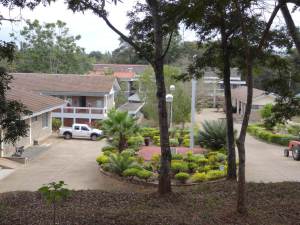
DERP, is mandated to undertake forestry research mainly in the drylands of Kenya. The programme develops forestry technologies for; forest productivity and improvement, biodiversity and environment management and forest products and undertakes socio-economics, policy and governance studies in; forestry. The programme also provides technical support services on forestry. The Programme implements its research and development activities in the following thematic areas: Forest Productivity and Improvement; Biodiversity and Environment Management; Forest Products Development; Socio-economics, Policy and Governance, and Technical Support Services.
Location
DERP headquarters is located in Kitui town, 194 km east of Nairobi. The Centre has an on-station experiment site at Tiva, 21 km from Kitui town along Kitui-Machakos road. DERP has two sub-centres at Kibwezi and Garissa, and one field station in Bura.
Geographical Coverage
DERP covers 9 counties namely: Kitui, Machakos, Makueni, Mandera, Wajir, Isiolo, Garissa, Samburu and Marsabit. The eco-region research programme also partially covers; Kajiado, Taita Taveta, Lower Embu, Lower Tharaka Nithi, and Upper Tana.
Forest Biodiversity and Environment Management
Development of technologies for rehabilitation of woodlands
Development of drought tolerant trees for adaptation to climate change
Management and utilization of invasive species including Prosopis
Determination of impact of charcoal production on species composition and diversity
Forest Productivity and Improvement
Propagation of high value and difficult to propagate species such as Terminalia brownii, Terminalia prunoides, bamboo and Osyris lanceolata
Silvicultural management of various indigenous species including Osyris lanceolata, Vitex payos, Terminalia brownii and Melia volkensii
Development of technologies for domesticating Maerua decumbens
Forest Product Development
Estimation of production potential of gums and resins
Assessment of effectiveness of Maerua decumbens extracts on water purification
Socio-economics, Policy and Governance
Development of extension methods for cost effective transfer of forest technologies
Development of cost-benefit sharing mechanism for Participatory Forest Management (PFM) among stakeholders
Determination of socio-economic contribution of charcoal value chain
Our Services
Dissemination of various technologies and information on forestry through open and field days, agricultural shows, conferences and workshops, print and electronic media
Trained stakeholders on propagation techniques, nursery and field management of bamboo and Melia volkensii
Consultancy and advisory services on forestry and allied natural resources
Our Products
High quality tree seeds and seedlings
Our Services
Student attachment
Seminar and conference facilities